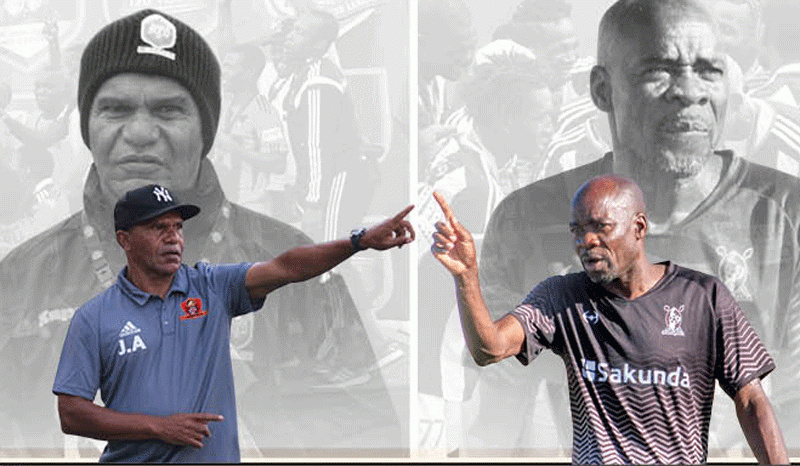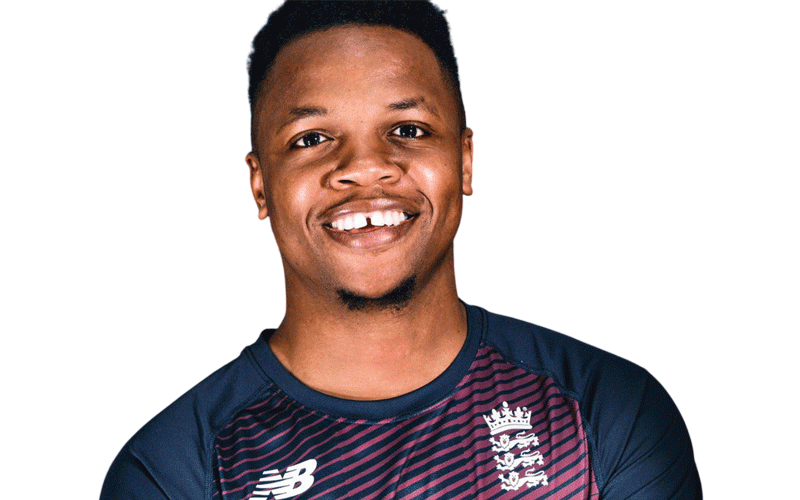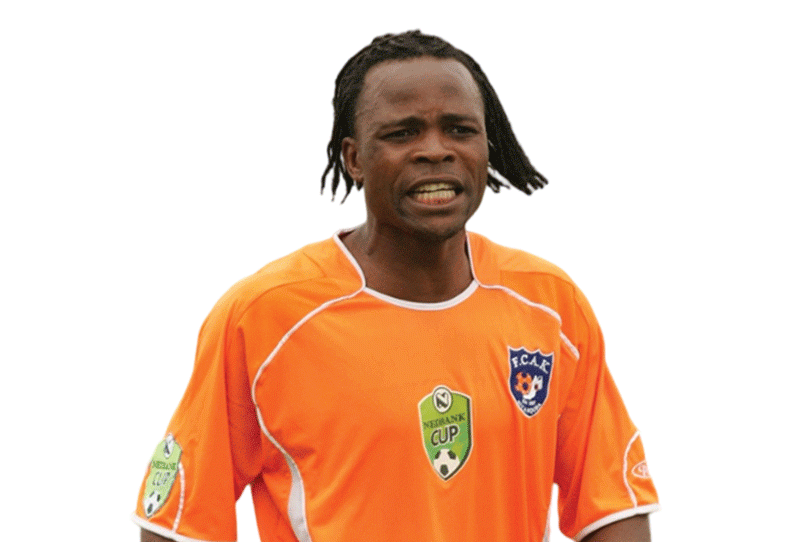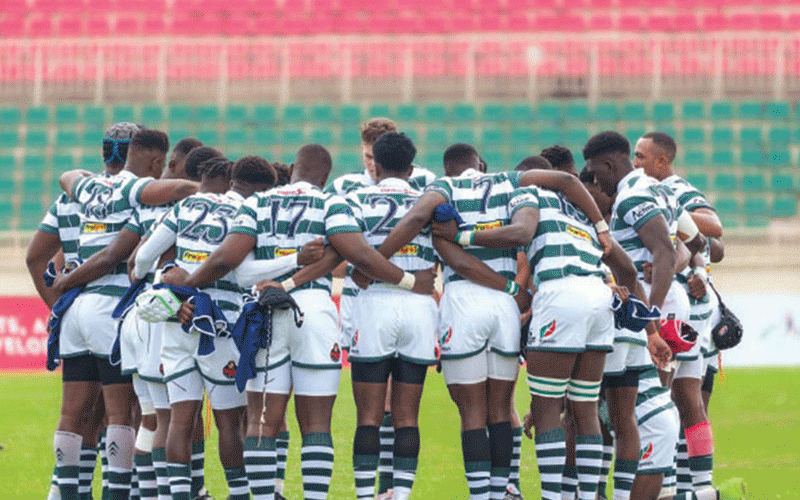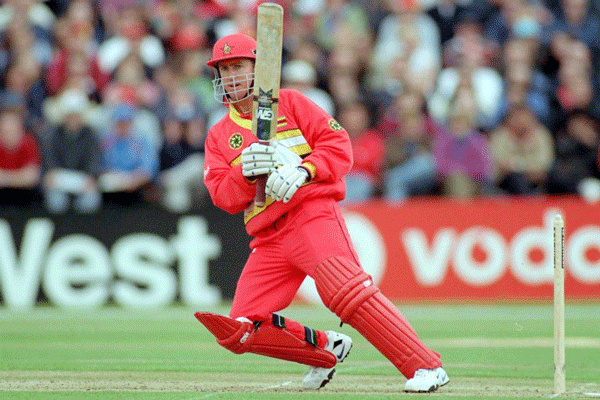
Veni, Vidi, Vici a Latin phrase meaning “I came, I saw, I conquered” perfectly describes Murray William Goodwin’s cricketing career in a nutshell.
yesteryear profile: cricfit.com

Standing about 1,75m tall, the former Zimbabwean international came, saw and conquered the English county circuit, breaking records galore during his decade-long stint with Sussex.
A master of horizontal bat shots, Goodwin’s international career came to an abrupt and premature end in 2000 when political crisis coupled with misadministration by some incompetent Zimbabwe Cricket officials cast aspersions on the progress of the country’s cricket.
The next 12 years saw Goodwin ply his trade in England with Sussex and score heavily in the county circuit with supreme panache.
He was instrumental in slaking the thirsts of the inhabitants of Sussex for the county championship when his unbeaten 335 against Leicestershire propelled the county to its first ever Division One title triumph in its 164-year history.
More accolades followed as his 12-year spell at Hove yielded over 14 500 first-class runs to go with nine trophies which included three county championships, a couple of Division Two titles, three One-Day tournament wins and a domestic T20 championship.
He also established himself as a vital member of the star-studded Western Australian team of the late 90s and early 2000s by clocking up 4 308 runs for them from 62 matches with 10 centuries and 21 fifties.
- Chamisa under fire over US$120K donation
- Mavhunga puts DeMbare into Chibuku quarterfinals
- Pension funds bet on Cabora Bassa oilfields
- Councils defy govt fire tender directive
Keep Reading
A man of many feats, Goodwin has ample records in his possession. From recording the highest individual first class score by a Sussex batsman to being the only Sussex player to have twice made a double century and a century in the same game to date, Goodwin has planted his flag atop various such summits.
He also had a brief fling with the now defunct Indian Cricket League (ICL) while playing eight games for the Ahmedabad Rocks in 2008.
The 43-year old Goodwin, who now works as a real estate agent in Perth, was appointed as the batting coach by his erstwhile club Sussex CCC earlier this year.
In a wide-ranging interview with cricfit.com, the former Zimbabwean batsman and Sussex legend reflected on his illustrious cricketing career and bared his thoughts about what is really curtailing the growth of the beleaguered Zimbabwean team.
Q: How did you get into cricket?
Goodwin: I am part of a sporting family legacy. My two older brothers were also reasonably good cricketers. Darrell represented Zimbabwe before the country got Test status. So, it runs in the family. My dad is equally passionate about the game and at one point in time, when I was a child; he used to conduct a cricket tournament called the Eagles Cricket programme during school vacation time. A lot of players who later went on to represent Zimbabwe in international cricket like the Flower brothers, then obviously myself, Heath Streak, Stuart Carlisle and Craig Wishart came through the programme. It was a fantastic initiative by my dad and he is well-known for it. Q: You could have made your career in Australia. What made you move to Zimbabwe to pursue your passion?
Goodwin: I played international cricket for Zimbabwe because I was born there. I wasn’t getting enough opportunities in the Western Australian side as I was batting at number six for the majority of the season and at times when Justin Langer would be busy with his international duties, I was promoted up the order to number three. The Western Australian team had a plethora of superstars in its ranks at that time in Adam Gilchrist, Damien Martyn, Justin Langer and Tom Moody, so it was a bit difficult for me to bat up the order. On the other hand, Zimbabwe wanted me to come and bat in the top order for them. I did think about making a career as an Australian international but Zimbabwe was desperately in search of a top-order batsman and I also had some very close friends of mine in the Zimbabwean team at that point in time. So, it seemed the logical choice.
Q: The batch which represented Zimbabwe in the latter part of the 90s is hailed by many as the best team the country has ever produced. What made that particular team look so different than all the other generations?
Goodwin: To be honest, I am not sure whether it was the best Zimbabwean team ever or not. I just think that we had a bunch of quality players in the side like the Flower brothers, Heath Streak and Paul Strang. There have been some great teams in the past but at least we were very competitive as we won plenty of ODIs and a few Test series’ during that period. We all became good friends over the course of time and always looked to play for each other and help each other, be it on the field or off it. I think that is what turned us into a competitive unit.
Q: It took you only 19 Tests and 71 ODIs to cement your place in the upper echelons of Zimbabwean cricket. Yet, you decided to quit international cricket when you were in the heyday of your career. What was the primary reason?
Goodwin: It was a tough decision to wave goodbye to Zimbabwe. We loved living there but the kind of circumstances which enveloped the country in general and Zimbabwean cricket in particular at that point of time compelled me to consider leaving the country. Many people think that my wife had troubles settling there, but that’s not the whole truth. Apart from the abysmal political situation prevailing in the country, I was dissatisfied with the overall functioning of the Zimbabwe Cricket Union. I was newly married and being the sole breadwinner of the family, I wanted to ensure a safe future for my wife and children. There were many factors that threatened to hinder the career of a professional cricketer in the country back then. We didn’t receive regular payments. I would have loved to continue playing for Zimbabwe had the ZCU been a bit more professional with its operations.
Q: Do you think you could have finished as Zimbabwe’s greatest batsman had you decided to prolong your international career?
Goodwin: If not the greatest, I reckon I would have been right up there had I not hung up my international boots so early.
Q: Zimbabwean cricket seems to be at its lowest ebb at the moment having lost all its last three Test and ODI series. What according to you has truncated the growth of cricket in a nation which once promised so much?
Goodwin: Yes, Zimbabwean cricket is certainly not in a great place at the moment. The root of all problems lies in the way the game is being run in the country. I sincerely hope the players are rescued from this quicksand as quickly as possible. Heath Streak is an ideal man to assume the role of a torchbearer at the moment.
Q: What is the state of first class cricket in Zimbabwe today? Isn’t Zimbabwe Cricket undertaking any positive step to improve the current scenario?
Goodwin: Look, I think Zimbabwe Cricket is working very hard to turn things around and bring about improvement in the First-class structure. That said; the First-class is presently not a good competition; it is pretty much a “non-event” today.
Q: Are you at all optimistic about Zimbabwean cricket’s progress in the near future if the situation remains unaltered?
Goodwin: I am really concerned about the future progress of Zimbabwe. The dearth of competitiveness at the domestic level is nothing but an outcome of the political instability in the country over the last two decades. Sometimes I feel sorry for this generation of Zimbabwean cricketers. They are struck in the doldrums. All they want to do is play good cricket and get paid regularly so that they can earn their daily bread. I think this is where the ICC should intervene and get some of the former players to coach the next crop of talented players.
Q: What measures according to you should be undertaken by the Zimbabwe Cricket officials to restore the lost confidence of the national side?
Goodwin: I just hope that the ICC steps in and provides financial assistance to Zimbabwe. Not just that, I would also like the ICC to monitor and audit the funds allocated to Zimbabwe Cricket on a regular basis so that the resources are properly channelised. It is also imperative for the board officials in Zimbabwe to initiate grassroots development programmes for children. It’s a major area of concern at present. I am sure Heath Streak has identified these aspects and will be looking to work on these as soon as possible.
Q: Who is your favourite Zimbabwean cricketer from this generation?
Goodwin: Sean Williams. I really like his technique.
Q: Now that you have gained some decent experience as a coach, what would your response be if the Zimbabwean cricket officials approach you tomorrow with an offer to take charge of the national side?
Goodwin: Well, Heath Streak is doing a fantastic job at present. Honestly speaking, it’s a tough one to answer. I have some decent coaching experience under my belt, but it will be a challenging proposition to coach the Zimbabwean national team. I enjoy coaching and I would look at it for future consideration. Right now, Zimbabwean cricket is in good hands with Heath Streak.

